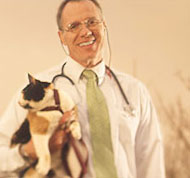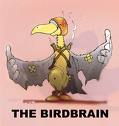June 16, 2007
Dr. Joyce Brothers
When Pets Come Between Partners
 Dr.
Joyce Brothers is a noted psychologist, columnist, author and
one of America's 10 most influential women. Her legendary books
have been translated into 26 languages, with her daily column
appearing in more than 175 newspapers. Hear what Dr. Joyce Brothers
has to say about pets coming between partners.
Dr.
Joyce Brothers is a noted psychologist, columnist, author and
one of America's 10 most influential women. Her legendary books
have been translated into 26 languages, with her daily column
appearing in more than 175 newspapers. Hear what Dr. Joyce Brothers
has to say about pets coming between partners.
See the results when Dog and Cat owners were asked: What disturbs
you most when sleeping and how often does your pet sleep in bed
with you at home? http://www.animalradio.com/sleepingdogs.html
Exploring the World on Horseback
Darley Newman, Equitrekking
 Darley Newman is
an equestrian travel expert, who searches the globe for the best
in horseback riding travel. As the host and producer of Equitrekking®,
the first equestrian travel television series to explore the globe
on horseback, and Managing Editor of Equitrekking.com, the one-stop
site for equestrian travel, Darley has ridden championship cutting
horses in Colorado, Andalusians on the beaches of Spain, Icelandic
horses in Iceland and thoroughbreds in Connecticut.
Darley Newman is
an equestrian travel expert, who searches the globe for the best
in horseback riding travel. As the host and producer of Equitrekking®,
the first equestrian travel television series to explore the globe
on horseback, and Managing Editor of Equitrekking.com, the one-stop
site for equestrian travel, Darley has ridden championship cutting
horses in Colorado, Andalusians on the beaches of Spain, Icelandic
horses in Iceland and thoroughbreds in Connecticut.
 Most recently
she has visited Iceland, Sweden, Finland, Ireland, Spain, Belize
and New Mexico. Darley continues to horseback ride in and around
New York City, Connecticut and all over the world.
Most recently
she has visited Iceland, Sweden, Finland, Ireland, Spain, Belize
and New Mexico. Darley continues to horseback ride in and around
New York City, Connecticut and all over the world.
Her Equitrekking series has gone national
in high definition on Public Television. Watch Equitrekking on
your local PBS station. Keep checking for updates on dates and
times.
http://www.Equitrekking.com
Summertime Allergies Affect Animals,
Too!
Dr. Jeanne Budgin, Veterinary
Dermatologist, ASPCA Bergh Memorial Animal Hospital
 Animal
lovers may be celebrating the arrival of Summer, but for many,
the season is synonymous with the "A" word-allergies!
Just like their pet parents, companion animals frequently develop
allergies. In fact, information collected by the ASPCA® (The
American Society for the Prevention of Cruelty to Animals®)
shows that about one out of every five dogs nationwide suffers
from some form of allergy.
Animal
lovers may be celebrating the arrival of Summer, but for many,
the season is synonymous with the "A" word-allergies!
Just like their pet parents, companion animals frequently develop
allergies. In fact, information collected by the ASPCA® (The
American Society for the Prevention of Cruelty to Animals®)
shows that about one out of every five dogs nationwide suffers
from some form of allergy.
An allergy is a disease that results from an abnormal reaction
of the immune system to common substances. In humans, symptoms
normally include sneezing, wheezing, runny nose and watery eyes.
Dogs and cats commonly will lick and scratch, causing skin irritations
and hair loss, and/or have frequent skin and ear infections. Although
not life threatening, the symptoms may make your pet very uncomfortable.
If you think that your dog or cat may
have allergies, talk to your veterinarian and discuss having your
pet tested and treated. For more information on how to take care
of your pets this summer, please visit www.aspca.org.
Emergency & Critical Pet Care:
Who's Caring for Your Pet after Business Hours?
Dr. John Robb
 Last
week, a veterinarian who referred critical and emergency care
cases to my emergency hospital, The Farmington Valley Veterinary
Emergency Hospital in Avon, Connecticut, contacted me to say he
was removing us from his answering machine as a referral for emergency
care. The decision stemmed from a client case in which his client
complained that our bill was too high for treating her two dogs,
which had been quilled by a porcupine. Each animal was under anesthesia
for over an hour as the doctor used a scalpel to cut and pry out
as many quills as she could find, and placed both dogs on the
best broad spectrum antibiotics available to protect the pets
from infection. This veterinarian claimed we were doing things
for money, instead of what was best for the pet. Furthermore,
he was upset that our emergency vets referred the clients he sent
in to us to a specialist instead of back to him.
Last
week, a veterinarian who referred critical and emergency care
cases to my emergency hospital, The Farmington Valley Veterinary
Emergency Hospital in Avon, Connecticut, contacted me to say he
was removing us from his answering machine as a referral for emergency
care. The decision stemmed from a client case in which his client
complained that our bill was too high for treating her two dogs,
which had been quilled by a porcupine. Each animal was under anesthesia
for over an hour as the doctor used a scalpel to cut and pry out
as many quills as she could find, and placed both dogs on the
best broad spectrum antibiotics available to protect the pets
from infection. This veterinarian claimed we were doing things
for money, instead of what was best for the pet. Furthermore,
he was upset that our emergency vets referred the clients he sent
in to us to a specialist instead of back to him.
Two days later we received a call from
another client who goes to this same referring veterinarian. His
dog had just died at this vet's hospital after suffering a relapse
to a disease that we had successfully treated at our emergency
clinic 9 months earlier with a blood transfusion and 24 hour critical
care. This time around, the referring vet did not send the dog
our way but, instead, hospitalized the dog in his own hospital,
and in fact, left the dog in a cage overnight with no one to care
for him. The dog was found dead in the morning. The owner was
beside himself since he had trusted this vet. This time, he saved
money at his day vet's office, but paid the ultimate price of
losing his best friend.
This happens every day across the United
States. Many veterinary hospitals don't have overnight care. When
animals are hospitalized overnight after surgeries or during sickness
there is no one to care for them once the staff leaves for the
night. They are left alone with the hope that their intravenous
line will continue to run and they will be alive in the morning.
Could you imagine a woman who has just had a c-section and the
nurses say good night to her at 8pm, and she is left alone until
they come back to work the next morning?
If you ever find your pet in need of emergency
or critical care, I urge you to ask if there is overnight monitoring
at the hospital you decide to leave your pet, and if not, request
a referral to a critical care facility that has the staff and
equipment to handle the case appropriately.
Join the Protect the Pets Movement:
Veterinary Medicine is changing rapidly.
Its important pet owners understand what's changing and why in
order to get great veterinary care for their pets. Dr. Robb leads
a national movement called Protect the Pets. He believes educating
pet owners allows them to get great veterinary care and drive
the changes necessary to improve the profession. Forty veterinarians
have joined the movement and subscribe to his Code of Conduct.
This Code of Conduct is the heart and soul of the movement. You
can view this Code of Conduct by going to the website - ProtectthePets.com and clicking on the Veterinary
section. Remember, being an educated consumer is the most important
thing you can do to Protect the Pets. Join the movement by going
to the website and signing up. Talk to your veterinarian about
joining the movement and subscribing to the Protect the Pets Code
of Conduct. Your Pets life may depend on it!
"Birdbrain"
Britt Savage
 Birdbrain has long been a colloquial
term of ridicule. The common notion is that birds' brains are
simple, or so scientists thought and taught for many years. But
that notion has increasingly been called into question as crows
and parrots, among other birds, have shown what appears to be
behavior as intelligent as that of chimpanzees.
Birdbrain has long been a colloquial
term of ridicule. The common notion is that birds' brains are
simple, or so scientists thought and taught for many years. But
that notion has increasingly been called into question as crows
and parrots, among other birds, have shown what appears to be
behavior as intelligent as that of chimpanzees.
Summer Sun Shines for the Animals
Rae Ann Kumelos, Voice of the
Animal
 Discover how, during the brightest
and lightest week of the year, a fashion designer, a grocer and
a president all made decisions that will have a positive affect
on animals for years to come.
Discover how, during the brightest
and lightest week of the year, a fashion designer, a grocer and
a president all made decisions that will have a positive affect
on animals for years to come.
http://www.VoiceOfTheAnimal.org
Talk With Your Animals
Joy Turner
1. Joy speaks with a young dog who need to re-learn a few things.
2. Joy speaks with a dog who doesn't like to put on a harness.
http://www.TalkWithYourAnimals.com
http://www.JoyTurner.com
Environmental Enrichment for Cats
Darlene Arden
 If you think all cats are independent
and don't interact with other cats and humans, think again! Cats
are intelligent sentient beings and therefore need environmental
enrichment.
If you think all cats are independent
and don't interact with other cats and humans, think again! Cats
are intelligent sentient beings and therefore need environmental
enrichment.
Things you can do top enrich the life
of your cat are:
*Cats see on a level make sure your
cat has a window perch or cat condo where he can sit and look
out the window
*Interactive toys these are feather sticks, etc., that you
and your cat can play with together. However, when you are not
playing with these toys, please put them away as they can be dangerous
to your cat if he is left alone with them
*Variety of toys just like human children, cats like to
have many different types of toys to play with
*Catnip you can purchase catnip toys or a catnip spray to
spray on existing toys and scratching posts
*Scratching posts cats need to stretch and scratch and scratching
posts are a necessity
*Interact with your cat twice daily for 10 minutes these
sessions can be playing or just brushing and holding your cat
*Catteries catteries our outdoor enclosures, fully contained,
which is a great safe way for your cat to enjoy the outdoors
http://www.DarleneArden.com
Beer for Dogs
Mike Fry, Animal Ark Animal
Shelter and Host of Animal Wise Radio with Dr. Linda Wolf
 Beer for dogs, what next? Perhaps
your dog prefers the taste of a nice cold beer after a hard day
of laying around, or maybe he just wants to drink out of the toilet!
Beer for dogs, what next? Perhaps
your dog prefers the taste of a nice cold beer after a hard day
of laying around, or maybe he just wants to drink out of the toilet!
http://www.AnimalWiseRadio.com
http://www.AnimalArkShelter.org
 Llamas by Sonya Lane
Llamas by Sonya Lane
Rae Ann Kumelos, Voice of the
Animal
The winner of a Radio Scriptwriting Contest sponsored by the non-profit
organization, Penelope's Bow, recently held in Las Vegas, NM,
and opens to sixth graders at Memorial Middle School, was won
by 12-year-old Sonya Lane with her story on llamas.
http://www.VoiceOfTheAnimal.org
Book Introduces Children to Therapy
Dogs
Lisa Dunn-Dern, Dr. Duncan
Dog on Duty!
 In
this charming children's picture book, Dr. Duncan Dog on Duty!,
author Lisa Dunn-Dern tells the story of an interracial family
and their adopted shelter dog who grows up to become a therapy
dog. It's a wonderful way to teach children - and their parents
- about the difference therapy dogs can make for young and old
alike in a hospital environment. Dunn-Dern also clearly explains
the vest the dog wears and the must-have tools including treats
for the patients to give to the dog, and wipes for their hands
after petting the dog.
In
this charming children's picture book, Dr. Duncan Dog on Duty!,
author Lisa Dunn-Dern tells the story of an interracial family
and their adopted shelter dog who grows up to become a therapy
dog. It's a wonderful way to teach children - and their parents
- about the difference therapy dogs can make for young and old
alike in a hospital environment. Dunn-Dern also clearly explains
the vest the dog wears and the must-have tools including treats
for the patients to give to the dog, and wipes for their hands
after petting the dog.
Lisa researched an animal-assisted therapy
program at Children's Hospital in Los Angeles in order to tell
the story of a shelter dog that brings joy to patients. A portion
of the proceeds from the book will be donated to organizations
that benefit children and animals.
Lisa Dunn-Dern is a children's lifestyle
expert, writer, author, television and radio personality, director
of children's theater, wife and mother.
http://www.derngoodbooks.com
Listen to the
1st Hour ABRIDGED VERSION Podcast of this show (#394).
Purchase
a CD Copy of this Show
 View Animal Radio
Network™ Broadcast Schedule in a new window.
View Animal Radio
Network™ Broadcast Schedule in a new window.
 Listen to Animal Radio®
- Go to the launch page
Listen to Animal Radio®
- Go to the launch page
 Return to Animal Radio Network™ Home Page
Return to Animal Radio Network™ Home Page
 Read
June Newsletter
Read
June Newsletter
Copyright 2007 All Rights
Reserved Animal Radio Network LLC
 Dr.
Joyce Brothers is a noted psychologist, columnist, author and
one of America's 10 most influential women. Her legendary books
have been translated into 26 languages, with her daily column
appearing in more than 175 newspapers. Hear what Dr. Joyce Brothers
has to say about pets coming between partners.
Dr.
Joyce Brothers is a noted psychologist, columnist, author and
one of America's 10 most influential women. Her legendary books
have been translated into 26 languages, with her daily column
appearing in more than 175 newspapers. Hear what Dr. Joyce Brothers
has to say about pets coming between partners. Darley Newman is
an equestrian travel expert, who searches the globe for the best
in horseback riding travel. As the host and producer of Equitrekking®,
the first equestrian travel television series to explore the globe
on horseback, and Managing Editor of Equitrekking.com, the one-stop
site for equestrian travel, Darley has ridden championship cutting
horses in Colorado, Andalusians on the beaches of Spain, Icelandic
horses in Iceland and thoroughbreds in Connecticut.
Darley Newman is
an equestrian travel expert, who searches the globe for the best
in horseback riding travel. As the host and producer of Equitrekking®,
the first equestrian travel television series to explore the globe
on horseback, and Managing Editor of Equitrekking.com, the one-stop
site for equestrian travel, Darley has ridden championship cutting
horses in Colorado, Andalusians on the beaches of Spain, Icelandic
horses in Iceland and thoroughbreds in Connecticut. Most recently
she has visited Iceland, Sweden, Finland, Ireland, Spain, Belize
and New Mexico. Darley continues to horseback ride in and around
New York City, Connecticut and all over the world.
Most recently
she has visited Iceland, Sweden, Finland, Ireland, Spain, Belize
and New Mexico. Darley continues to horseback ride in and around
New York City, Connecticut and all over the world. Animal
lovers may be celebrating the arrival of Summer, but for many,
the season is synonymous with the "A" word-allergies!
Just like their pet parents, companion animals frequently develop
allergies. In fact, information collected by the ASPCA® (The
American Society for the Prevention of Cruelty to Animals®)
shows that about one out of every five dogs nationwide suffers
from some form of allergy.
Animal
lovers may be celebrating the arrival of Summer, but for many,
the season is synonymous with the "A" word-allergies!
Just like their pet parents, companion animals frequently develop
allergies. In fact, information collected by the ASPCA® (The
American Society for the Prevention of Cruelty to Animals®)
shows that about one out of every five dogs nationwide suffers
from some form of allergy. Last
week, a veterinarian who referred critical and emergency care
cases to my emergency hospital, The Farmington Valley Veterinary
Emergency Hospital in Avon, Connecticut, contacted me to say he
was removing us from his answering machine as a referral for emergency
care. The decision stemmed from a client case in which his client
complained that our bill was too high for treating her two dogs,
which had been quilled by a porcupine. Each animal was under anesthesia
for over an hour as the doctor used a scalpel to cut and pry out
as many quills as she could find, and placed both dogs on the
best broad spectrum antibiotics available to protect the pets
from infection. This veterinarian claimed we were doing things
for money, instead of what was best for the pet. Furthermore,
he was upset that our emergency vets referred the clients he sent
in to us to a specialist instead of back to him.
Last
week, a veterinarian who referred critical and emergency care
cases to my emergency hospital, The Farmington Valley Veterinary
Emergency Hospital in Avon, Connecticut, contacted me to say he
was removing us from his answering machine as a referral for emergency
care. The decision stemmed from a client case in which his client
complained that our bill was too high for treating her two dogs,
which had been quilled by a porcupine. Each animal was under anesthesia
for over an hour as the doctor used a scalpel to cut and pry out
as many quills as she could find, and placed both dogs on the
best broad spectrum antibiotics available to protect the pets
from infection. This veterinarian claimed we were doing things
for money, instead of what was best for the pet. Furthermore,
he was upset that our emergency vets referred the clients he sent
in to us to a specialist instead of back to him. Birdbrain has long been a colloquial
term of ridicule. The common notion is that birds' brains are
simple, or so scientists thought and taught for many years. But
that notion has increasingly been called into question as crows
and parrots, among other birds, have shown what appears to be
behavior as intelligent as that of chimpanzees.
Birdbrain has long been a colloquial
term of ridicule. The common notion is that birds' brains are
simple, or so scientists thought and taught for many years. But
that notion has increasingly been called into question as crows
and parrots, among other birds, have shown what appears to be
behavior as intelligent as that of chimpanzees. Discover how, during the brightest
and lightest week of the year, a fashion designer, a grocer and
a president all made decisions that will have a positive affect
on animals for years to come.
Discover how, during the brightest
and lightest week of the year, a fashion designer, a grocer and
a president all made decisions that will have a positive affect
on animals for years to come. If you think all cats are independent
and don't interact with other cats and humans, think again! Cats
are intelligent sentient beings and therefore need environmental
enrichment.
If you think all cats are independent
and don't interact with other cats and humans, think again! Cats
are intelligent sentient beings and therefore need environmental
enrichment. Beer for dogs, what next? Perhaps
your dog prefers the taste of a nice cold beer after a hard day
of laying around, or maybe he just wants to drink out of the toilet!
Beer for dogs, what next? Perhaps
your dog prefers the taste of a nice cold beer after a hard day
of laying around, or maybe he just wants to drink out of the toilet! Llamas by Sonya Lane
Llamas by Sonya Lane In
this charming children's picture book, Dr. Duncan Dog on Duty!,
author Lisa Dunn-Dern tells the story of an interracial family
and their adopted shelter dog who grows up to become a therapy
dog. It's a wonderful way to teach children - and their parents
- about the difference therapy dogs can make for young and old
alike in a hospital environment. Dunn-Dern also clearly explains
the vest the dog wears and the must-have tools including treats
for the patients to give to the dog, and wipes for their hands
after petting the dog.
In
this charming children's picture book, Dr. Duncan Dog on Duty!,
author Lisa Dunn-Dern tells the story of an interracial family
and their adopted shelter dog who grows up to become a therapy
dog. It's a wonderful way to teach children - and their parents
- about the difference therapy dogs can make for young and old
alike in a hospital environment. Dunn-Dern also clearly explains
the vest the dog wears and the must-have tools including treats
for the patients to give to the dog, and wipes for their hands
after petting the dog.